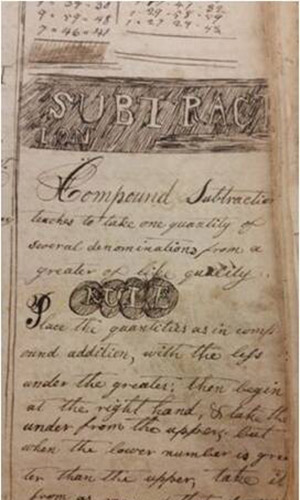 During two weeks in July the scholars from across the country will research "Commonplace
Books and Scrapbooks" as part of an National Endowment of the Humanities grant.
During two weeks in July the scholars from across the country will research "Commonplace
Books and Scrapbooks" as part of an National Endowment of the Humanities grant.  They will explore how commonplace books - early attempts to manage and make sense
of information - helped record lives, ideas, notes and bits over time.
They will explore how commonplace books - early attempts to manage and make sense
of information - helped record lives, ideas, notes and bits over time.
ROCK HILL, SOUTH CAROLINA — Two Winthrop University fine arts professors received
$93,000 from the National Endowment for the Humanities to lead 16 university educators in the exploration of the commonplace book, scrapbook,
friendship album, and travel books in Asheville, North Carolina.
During two weeks in July the scholars from across the country will research "Commonplace Books and Scrapbooks" as part of the grant. They will explore how commonplace books - early attempts to
manage and make sense of information - helped record lives, ideas, notes and bits
over time.
Their descendants - the scrapbook, memory books, photograph albums, etc., and 21st
century blogs - show a current time's meaning and reveal an identity about an individual
or place. Famous figures such as Leonardo da Vinci, Mark Twain and Susan B. Anthony
created commonplace books and scrapbooks in their lifetimes. The group will explore
previously overlooked materials in Western North Carolina collections.
Organizers said the scholars will create their own commonplace book as part of the
experience. "We're asking the scholars to find something memorable," said Laura Gardner,
professor of fine arts. She and Laura Dufresne, also professor of fine arts, organized
this 2016 summer seminar for college and university teachers and chose Asheville because
it has a history of strong arts and health communities.
They will be in Asheville from July 17-31 to investigate the collections at several locations: Special Collections and University Archives, University of North Carolina Asheville;
Western Regional Archives, State Archives of NC; Buncombe County Library System; Special
Collections at Mars Hill College; and private archives at the Carl Sandburg Home and
Biltmore Estate.
The scholars will be sharing information about their findings in a traveling exhibit
that will be in the Winthrop Galleries during the fall of 2017.
The Endowment is a federal agency that supports each summer enrichment opportunities
at colleges, universities, and cultural institutions, so that faculty can work in
collaboration and study with experts in humanities disciplines.
Among other topics for the 23 seminars and institutes offered for college and university teachers this summer are: Alexis de Tocqueville
and American Democracy; American Maritime History; "Beowulf" and Old Norse-Icelandic
Literature; Chaucer's "Canterbury Tales;" Confucian Asia; Ernest J. Gaines and the
Southern Experience; The History of Political Economy; The Land Ethic, Sustainability,
and the Humanities; Mapping, Text, and Travel; Modern Mongolia; Moral Psychology and
Education; Native American Histories and the Land; The Ottoman Empire, Europe, and
the Mediterranean World, 1500-1800; Presuppositions and Perception; Problems in the
Study of Religion; Religion, Secularism, and the English Novel, 1719-1897; Teaching
the Reformation; Tokyo: High City and Low City; Urban Arts in Africa and the African
Diaspora; Veterans in American Society; The Visual Culture of the Civil War and Reconstruction;
Westward Expansion and the Constitution.
The approximately 521 NEH Summer Scholars who participate in these programs of study will teach more than 91,175 American students
the following year.
For more information about the Winthrop project, contact Judy Longshaw, news and media services manager, at 803/323-2404 or e-mail her at longshawj@winthrop.edu.